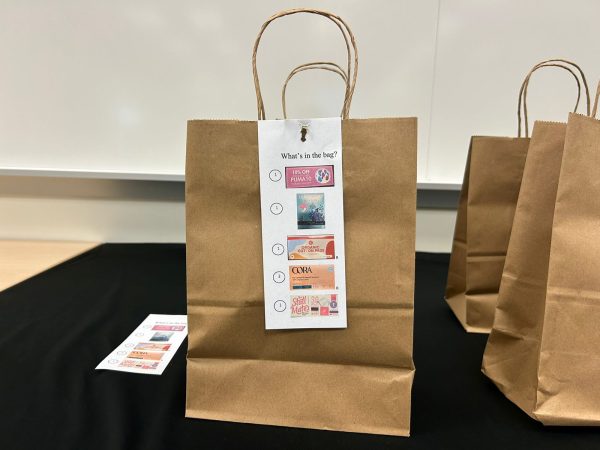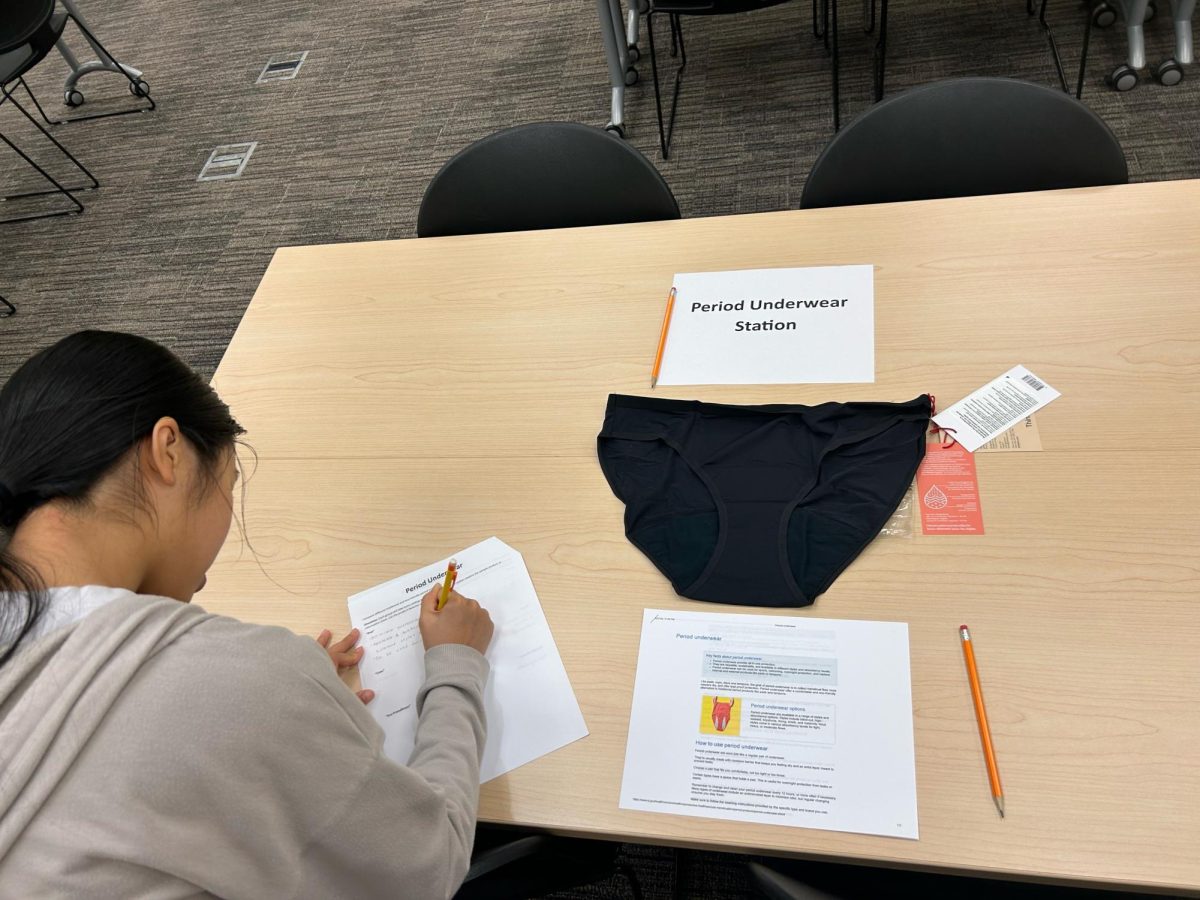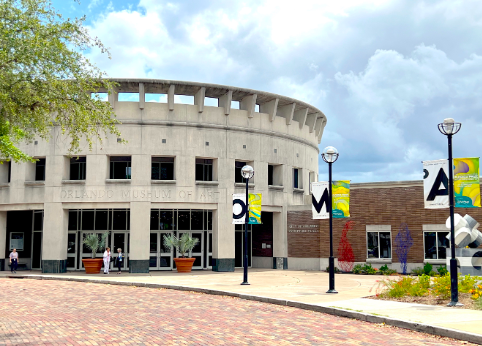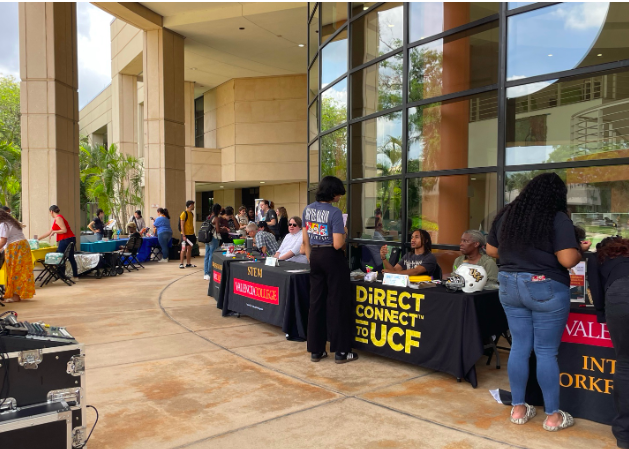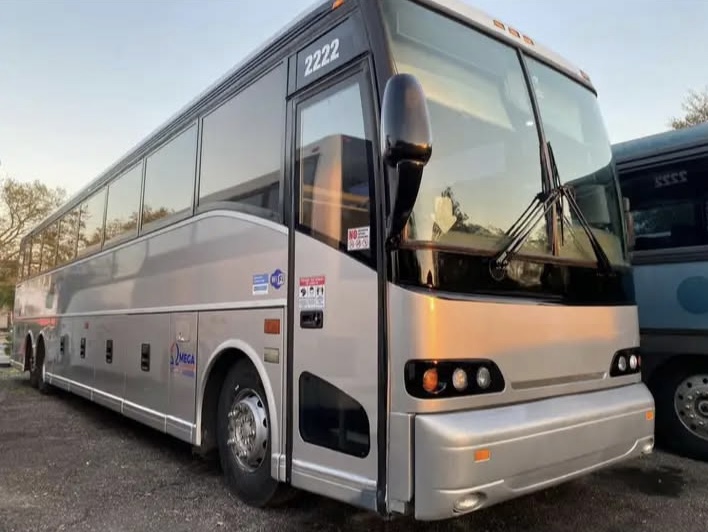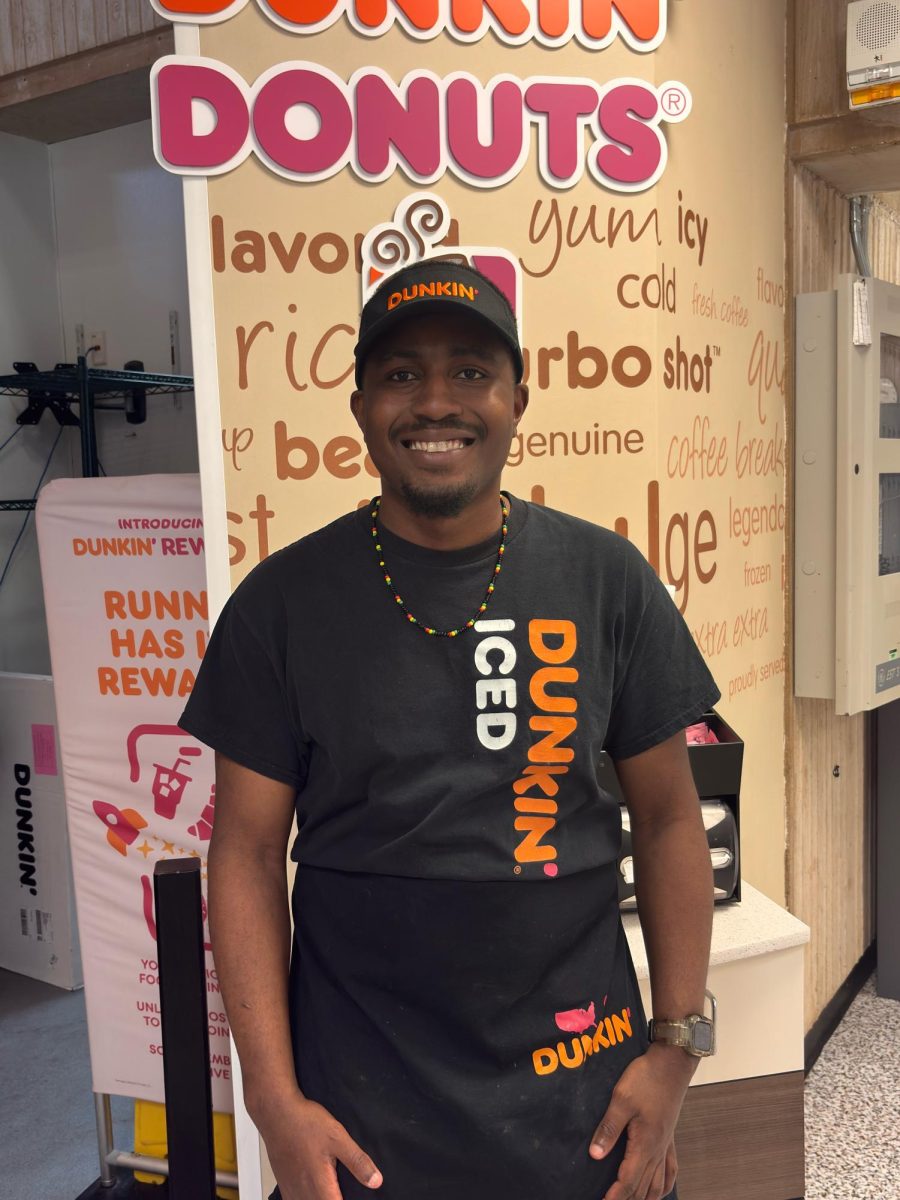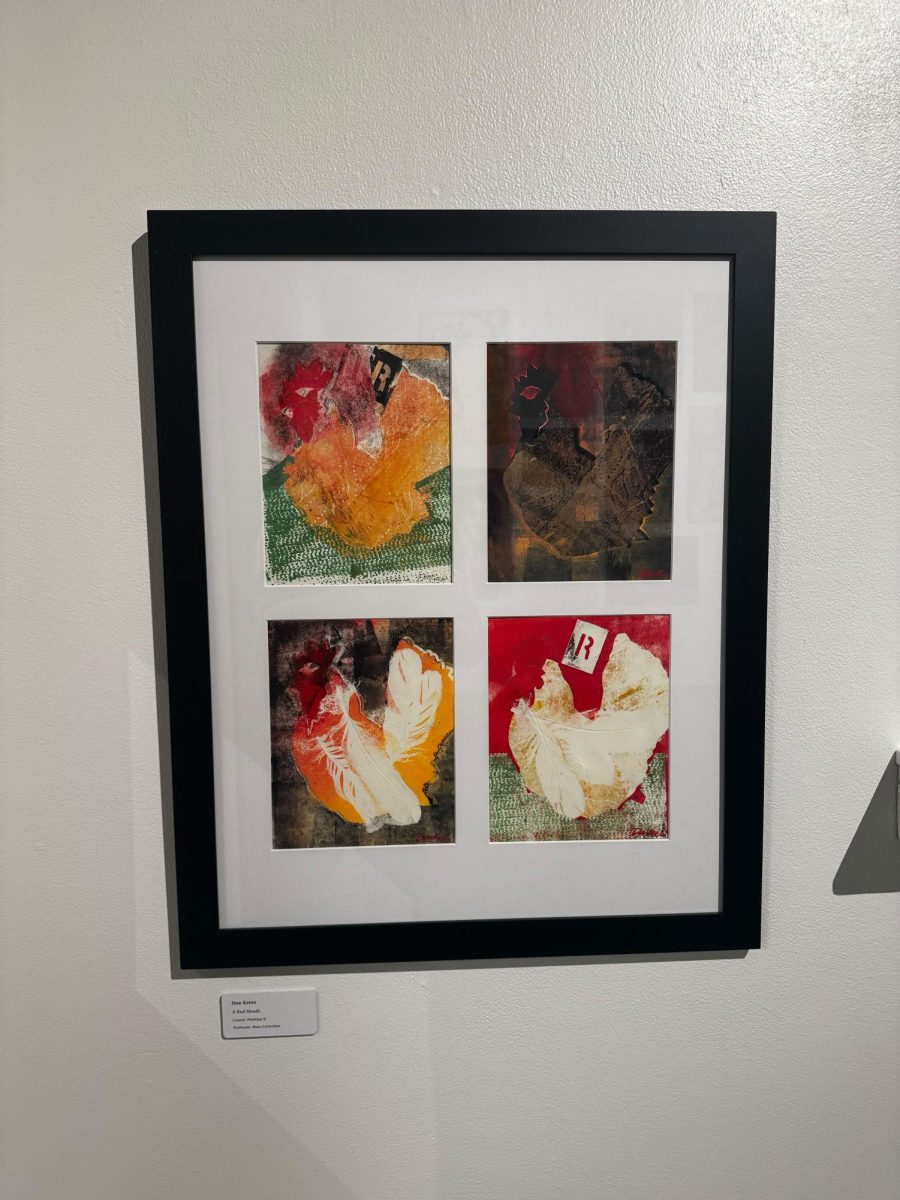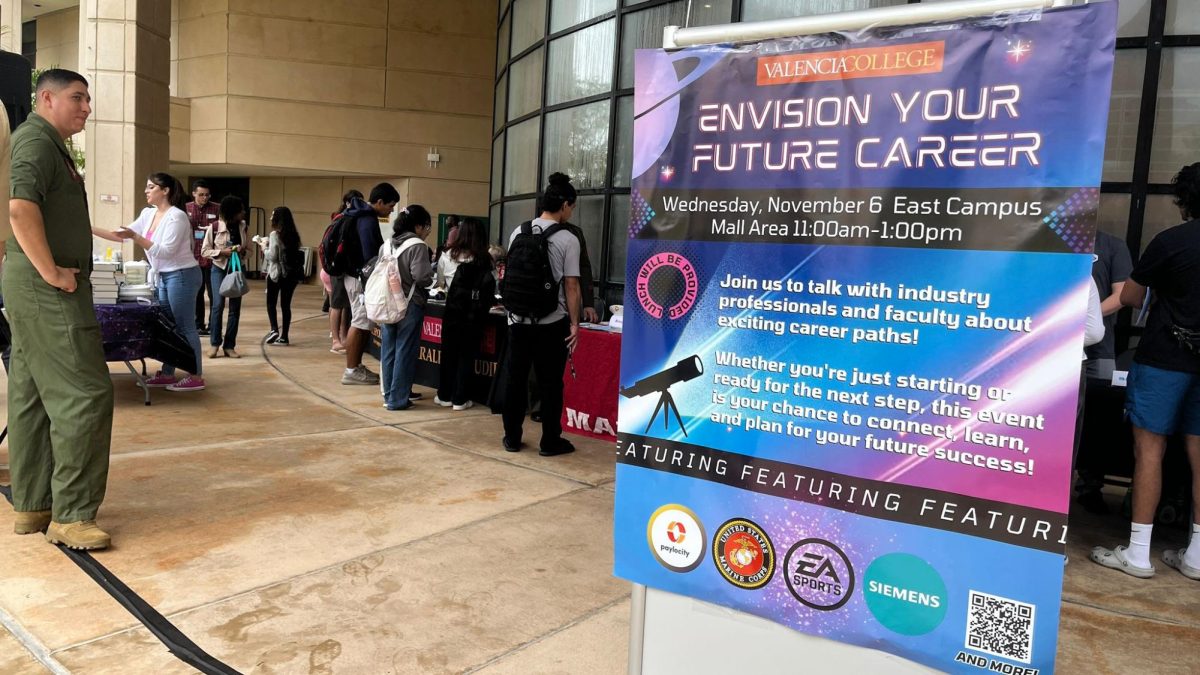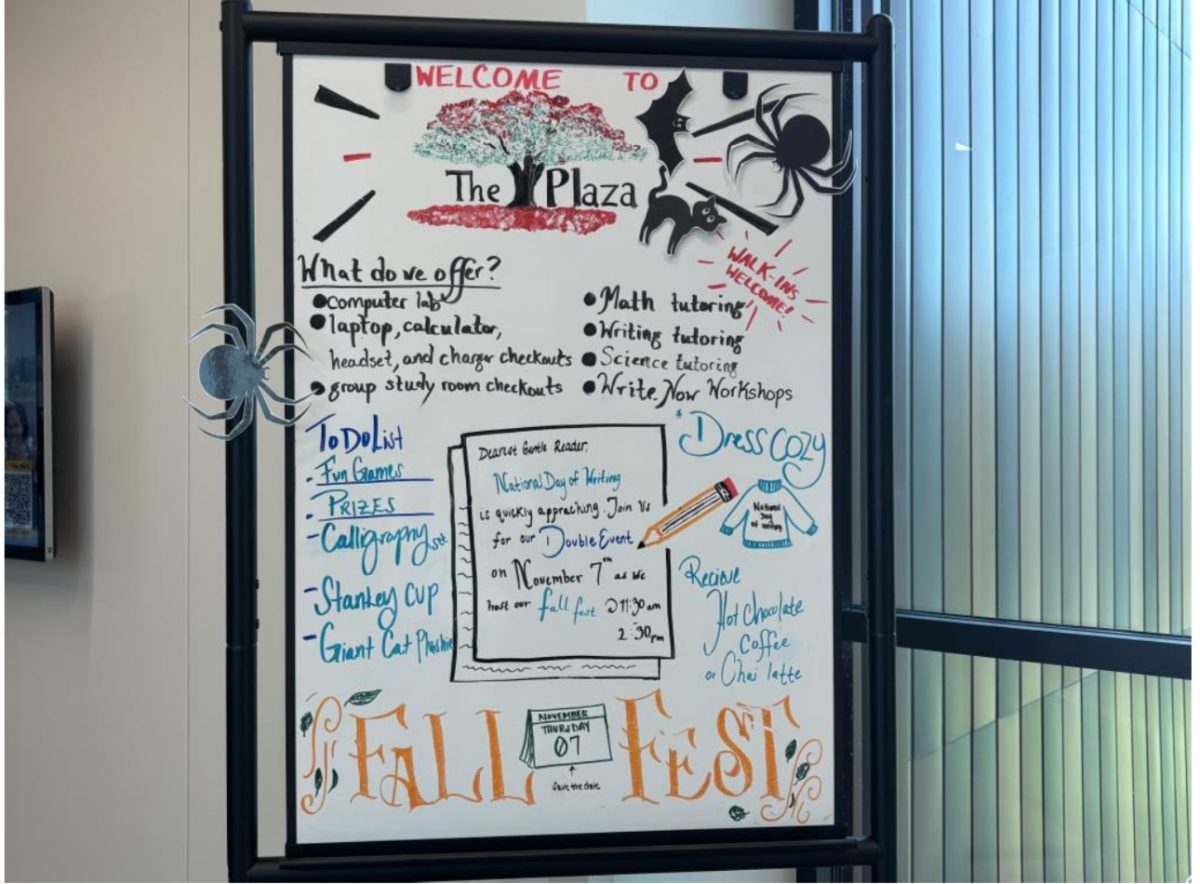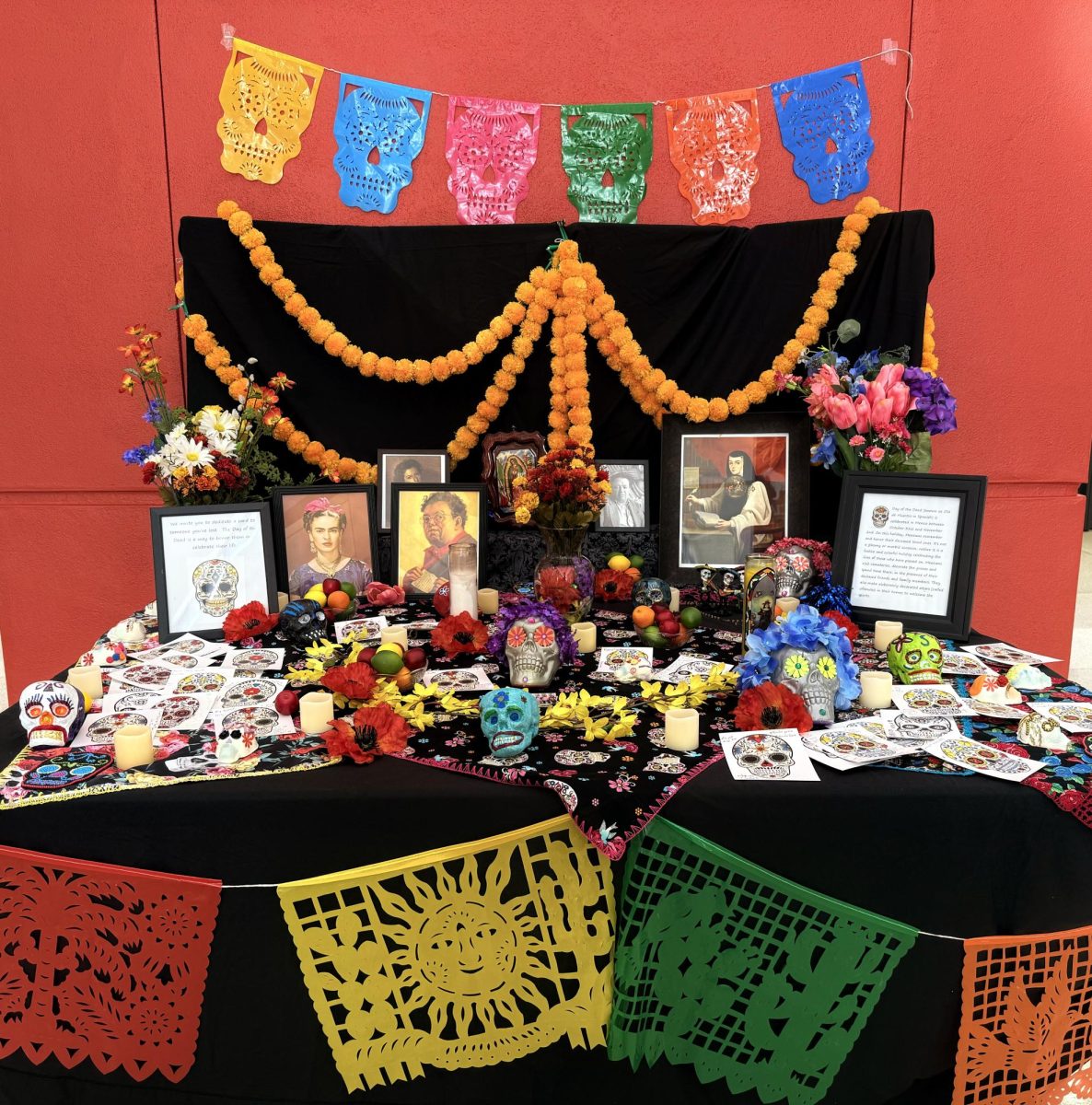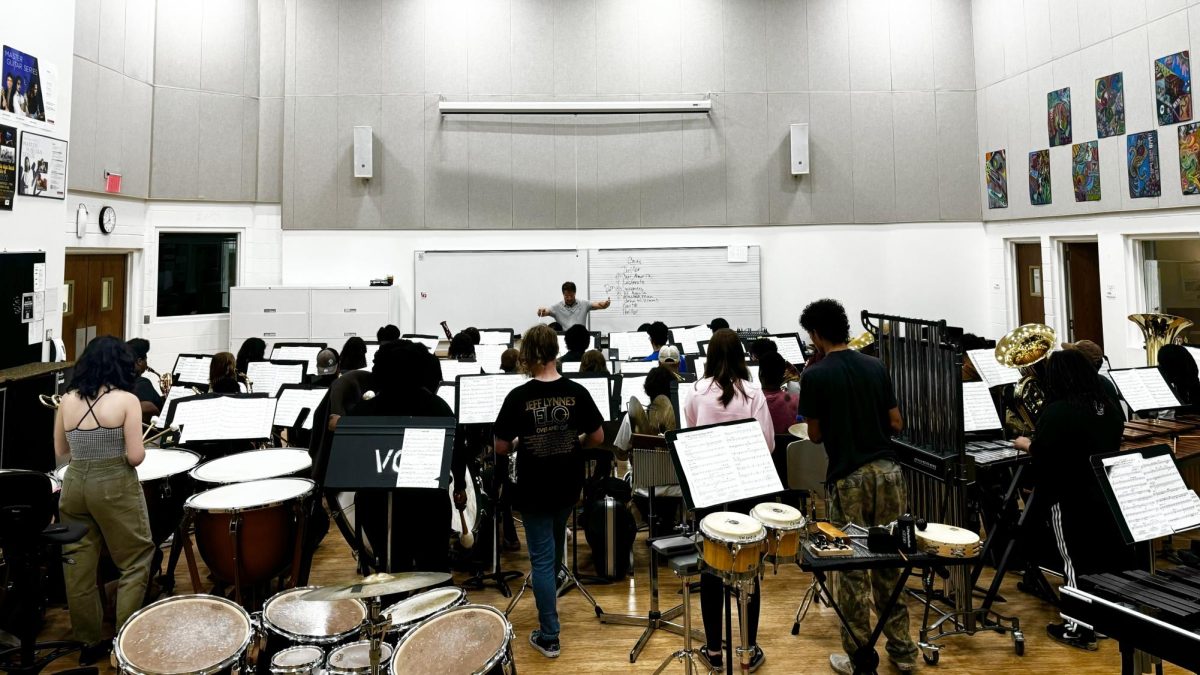Valencia College students and faculty gathered at East Campus on October 23 for a hands-on workshop addressing the impact of plastic-based period products.
Through compelling insights, eco-friendly options, and interactive demonstrations, attendees left informed to embrace sustainable menstrual health practices.
Hosted by Valencia College Libraries, this workshop aimed to educate participants on the environmental impact of traditional period products while promoting sustainable and accessible menstrual health options. This initiative aligns with a growing national trend. According to Statista, the United States is experiencing increased demand for eco-friendly and sustainable feminine hygiene products.
Librarians from Valencia’s West Campus, Devika Ramsingh and Nardia Cumberbatch, led the workshop, transforming the room into an interactive learning space. Attendees were greeted with a layout of various items, including biodegradable pads, plastic-free tampons, washable pads, menstrual cups, and period underwear. The setting encouraged exploration, with each product type labeled with information on its environmental impact and practical uses.
Each product was explained in terms of its pros and cons, including factors like comfort, material safety, and potential cost savings. The speakers emphasized the flexibility in choices to accommodate different preferences and comfort levels.
“Sustainability on a whole is important, especially given our current environmental situation, and this is just one way that we can contribute to a sustainable earth and improve our environment,” Ramsingh said.
As the session began, the librarians engaged the audience by asking, “What are some ways that you reduce waste?” This opening question invited participants to reflect on their own habits, setting the tone for a discussion on sustainable alternatives for menstrual health. Ramsingh and Cumberbatch presented impactful statistics, highlighting that 300 million women menstruate daily, contributing to significant global waste. They explained that traditional period products, primarily made from plastic-based materials, can take hundreds of years to decompose, posing a major environmental challenge.
The workshop provided three main reasons for considering eco-friendly menstrual products: reducing waste, minimizing long-term environmental impact, and promoting a healthier lifestyle. Attendees learned that the average woman produces approximately 330 pounds of non-biodegradable waste annually from traditional period products alone, contributing to trillions of disposable products worldwide.
Cumberbatch, one of the speakers, highlighted the impact that eco-friendly period products can have on reducing plastic waste. “I think it’s a great way for women, in particular, to make a difference,” she said. “This is one of those unseen ways that menstruators can make a big difference when it comes to plastic use in our environment.”
The benefits discussed were not only for the environment and surroundings, but also for women. According to Aisle, a Canadian company that manufactures washable feminine hygiene products, “Eco-friendly products are typically free from fragrances, and chemicals that can cause irritation or allergic reactions. They allow for better airflow, reducing the risk of infections and promoting overall menstrual health.”
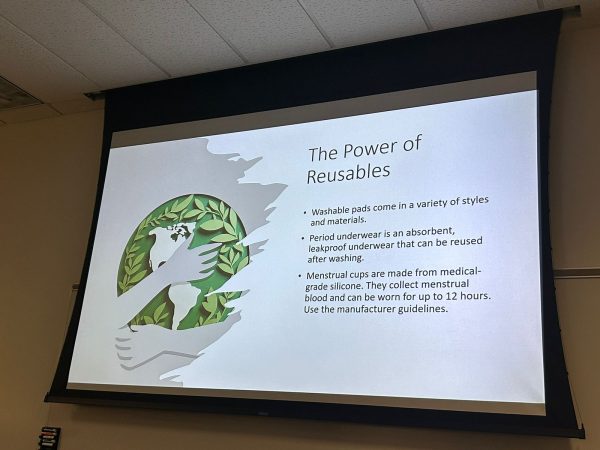
Ramsingh shared that the workshop was designed to raise awareness among students and faculty, who may not be fully informed about eco-friendly period products.
“No survey has been done on this, so we are not 100% sure. That’s why we embarked on this project, to really enhance awareness and make students and faculty aware of it,” she explained.
According to the International Journal of Gynecology and Obstetrics, “lack of awareness concerning the environmental impacts of disposable menstrual products is one important barrier to their use.” They also noted that “a recent study that explored the level of knowledge individuals have about the environmental impact of menstrual products found a relatively low awareness of these issues.”
Yanhua Zhen, general studies student from China, attended the workshop to learn about new options.
“I was just interested in learning about other alternatives for menstrual products,” Zhen said. While she had previously considered eco-friendly products, her main concern was their cost. “Yes, although the higher price was my main concern, learning from the presentation today it was said to be cost-effective and a long-term investment,” she noted.
“There was a giveaway, and there were also hands-on activities that showed me what materials were used in the variety of products,” Zhen said, sharing that she especially liked the period underwear.
Ramsingh encouraged students to explore the eco-friendly options provided, emphasizing the importance of hands-on experience in finding the right fit.
“Try it. That’s what this session is about. We give you samples so you can try it and make a decision on your own,” she explained.
Cumberbatch advised to first try eco-friendly versions of familiar products. “If you’re already using tampons, try the plastic-free ones. If you’re already using pads, try the plastic-free ones,” she recommended.
Acknowledging cost as a factor, she suggested practical strategies, such as bulk purchasing, to make eco-friendly choices more affordable. “One of the companies we sampled lets you buy in bulk, which is helpful, especially if you live in a house with other menstruators.”
Reflecting on the workshop’s success, Cumberbatch noted the participants’ enthusiasm.
“You guys wanted more time at certain stations, which shows real interest,” she said. “If we help one person, and they help two more, the impact keeps growing. I didn’t start this journey alone; someone helped me. It’s one step at a time, and in the last ten years, so much has changed.”
The workshop concluded with the experts providing additional resources for students to further explore eco-friendly products and learn more about sustainable menstrual health. As more students and faculty prioritize sustainability, workshops like this can serve as valuable platforms for environmental advocacy and women’s health awareness.
